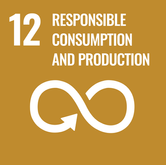
Sustainable Development Goals


About Our Sustainability Program
The United Nations Sustainable Development Goals (SDGs) are a set of 17 global objectives adopted in 2015 as part of the 2030 Agenda for Sustainable Development, serving as a universal framework to address interconnected challenges such as poverty, inequality, environmental degradation, health, education, gender equity, peace, and sustainable economic growth.
Each goal is supported by specific targets and measurable indicators — 169 targets in total — designed to guide policy, funding, and institutional action across varying sectors and disciplines.
For Higher Education Institutions (HEIs), this means compliance with a sustainable development target, embedding standards of green and eco-friendly sanctions in the university’s operations. Transforming abstract global goals into concrete institutional responsibilities must be disseminated to the student body through active instruction and participation, ensuring that sustainability practices are not confined to administrative policies
The SDGs emphasize a holistic approach: recognizing the interdependence of ecological systems, human well-being, and institutional accountability. They apply to all countries, regardless of development status, and require coordinated efforts from governments, civil society, the private sector, and academic institutions. As both a moral and practical blueprint, the SDGs promote inclusive and data-informed development, and serve as the global benchmark for sustainability reporting and program alignment through the year 2030.
Foundation University implements its commitment to the Sustainable Development Goals through structured, policy-driven mechanisms embedded across its many functions. The integration is systematic, guided by institutional frameworks that align planning and extension


"While our imperative now is to implement these agreements, it is important to recall that the SDGs are not just an additional plan for the world, nor do they replace the specificity and detail of existing international agreements. The SDGs are a shared vision of a world … the “vision piece” of the globalization puzzle. Indeed, we are well beyond measuring poverty only in GDP terms. In a manner of speaking, the 169 Targets underpinning the SDGs are 169 ways of explain how no one is to be left behind. In other words, these 17 Goals and 169 targets – for which indicators exist and monitoring systems are being set – form the basis of a new social contract between the world’s leaders and their people."



.png)
Thomas Gass, Keynote Speaker
Our Thrusts

Research
By aligning sustainability with a strong research agenda, we encourage faculty and students to devise creative solutions to issues in sustainability and climate resilience. This thrust emphasizes scientific and research-oriented approaches to sustainable practice. As much as possible, we try to explore alternatives to extractive and technocratic models by foregrounding interventions with local and indigenous perspectives, which are treated as sources of insight rather than preliminary steps toward a corrective measure.
Research takes shape within communities through fieldwork, collaborative data gathering, participatory methods, and a steady exchange of ideas between academics and residents. Foundation University's closeness to everyday community life makes it possible to work with stakeholders on long-term strategies, ensuring that each project grows from trust and mutual respect.
Practice
The Practice thrust attends to the structures that shape operations in the university and how sustainability is carried out through daily decisions. It raises questions about the systems that govern use and circulation, in what is built, what is maintained, and what is discarded. These deliberations reflect our priorities in shaping the conditions for learning and in cultivating habits of care and environmental responsibility.
This thrust works to establish a clear and consistent pattern of behavior where sustainable practices are integrated into the rhythm of university life. Operational systems are continually assessed as part of an ongoing effort to align the university’s internal functions with the broader environmental goals. It begins with personal, manageable choices and in paying attention to how everyday decisions affect the environment. Over time, these actions accumulate, reinforcing a steady awareness of one's obligation.
Community
Effective community engagement extends our mission beyond the university gates. Through a collaborative dialogue with involved locals, our projects offer a space where aspirations and expertise converge with the lived realities of the surrounding region. We want to pursue a common ground for action and establish a horizontal engagement with everyone involved.
The Community thrust embraces a spirit of shared responsibility. It recognizes that meaningful change does not come from the university alone, but from sustained partnerships built on trust and mutual investment. In working alongside communities, we acknowledge their strengths, histories, and apprehensions as central to the process of cultivating a greener, more sustainable environment.
Foundation University's
Commitment Strategy
Foundation University’s commitment to the Sustainable Development Goals is rooted in the vision that guided its earliest days. When Dr. Vicente Sinco laid the grounds for this institution, he saw rebuilding the country as a moral obligation to the land and its people. He believed scholarship and stewardship belonged together, and that conviction found expression in the first environmental policies he championed. Over time, that principle passed from faculty to students, shaping committees and everyday decisions across the campus
Clean-up drives and other community events are planned in coordination with local government units and civil society partners, ensuring that they respond to identified needs and are supported by monitoring and evaluation mechanisms. Participants are briefed using environmental data and SDG benchmarks before deployment, and the initiative is followed by reflection sessions and formal documentation. These programs are embedded into the university’s extension services, with clear links to SDG targets such as Life Below Water (SDG 14), Climate Action (SDG 13), and Sustainable Cities and Communities (SDG 11). Through direct, recurring participation in targeted community interventions, Foundation University affirms its commitment to sustainability not through advocacy alone, but through regulated, outcomes-based field engagement.



























.png)
